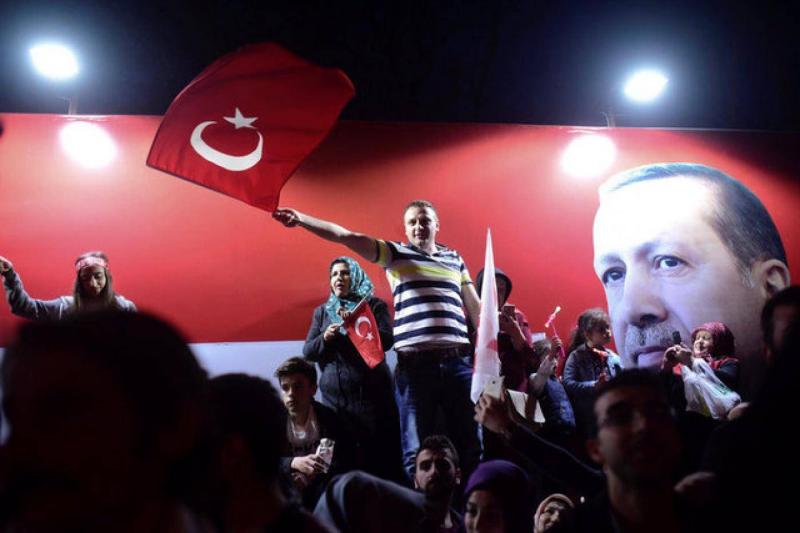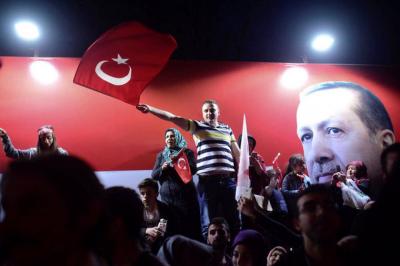There is no doubt that Turkey's upcoming days are not like its past ones. The country, which experienced a devastating earthquake about two months ago, is heading towards a political earthquake that is the fiercest in the last two decades. With Turkish President Recep Tayyip Erdoğan signing the decree for parliamentary and presidential elections to be held starting May 14, the brushstrokes of political artists begin to outline the future of the country and its governance.
The Turkish opposition faces many dilemmas in this election, the most notable of which is trying to avoid the Israeli scenario in governance, when disparate opposition factions united to confront Benjamin Netanyahu in order to remove him from power. This scenario led the country into a political crisis, as Prime Minister Naftali Bennett was unable to govern effectively due to the inconsistent alliances he formed. As the country reached an internal crisis, the politically savvy Netanyahu found his way back to power at the head of the most right-wing government in Israel's history.
In Turkey, the opposition agreed on its candidate Kemal Kılıçdaroğlu, reaching this decision after more than 72 hours of negotiations. Even with the "six-party table," referring to the six parties under the opposition's umbrella, reaching a consensus, the leader of the "Good Party," Meral Akşener, initially opposed his nomination but later accepted it. Akşener preferred to nominate Istanbul Mayor Ekrem İmamoğlu or Ankara Mayor Mansur Yavaş to compete against Erdoğan, considering them more capable of challenging him.
The opposition managed to consolidate after agreeing to appoint the two mayors as deputies to Kılıçdaroğlu should he win.
Programs Against Erdoğan
Beyond internal divisions, the opposition has set its sights on erasing Erdoğan's legacy if victorious, promising a return to "parliamentary democracy" and the abolition of the presidential system established by Erdoğan in 2018. According to the program announced on March 7, the opposition plans to reinstate the prime ministership, which Erdoğan abolished following the transition to the presidential system, transform the presidency into a neutral position, and eliminate the president's right to veto legislation and issue decrees.
These ideas, which directly confront Erdoğan's decisions and his vision for the Turkish state that he solidified over years of rule, are not easy to implement. Erdoğan, who came to power in 2002 with significant popularity that supported him throughout the years, only sought to amend the system after more than a decade in power, having arranged his files during his rule to reach this stage.
As the opposition threatens to reverse what Erdoğan has done, regardless of whether those decisions were right or wrong, it will need many years for "de-Erdoğanization" at the core of the ruling system.
Needless to say, Erdoğan will not sit idly by while the Turkish opposition dismantles what he has built over more than a decade in power, especially since he still enjoys considerable popularity, even if he loses the elections.
Of course, it is unclear what Erdoğan might do if this occurs, but what is certain is that he will not grant the Turkish opposition the luxury of political stability without confrontation.
Another significant dilemma for the Turkish opposition is the economic situation. If victorious, this opposition will inherit a challenging economic landscape beginning with the depreciation of the lira against the dollar and extending to the absence of a global economic outlook and its impacts on developing and emerging countries.
Despite the presumed candidate being a former economist, the circumstances surrounding the Turkish economy will be difficult to resolve if he wins, especially as they are global conditions not solely related to Turkey.
On the global stage, the world is approaching a continuous rise in US interest rates, which affects foreign investments in most developing and emerging countries and weakens individuals' ability to enter the business world due to the high cost of capital and the strengthening of the dollar against other currencies.
Additionally, Turkey had adhered to a unique monetary policy over the past years by lowering interest rates to combat inflation, while most central banks worldwide were raising them. Erdoğan dismissed three central bank governors over two years who attempted to rebel against his interest rate policy.
Despite Erdoğan's policies, inflation did not decrease; instead, it continued to reach record highs, hitting around 85% last year.
Despite these policies significantly harming Erdoğan's popularity, the Turkish president has managed to increase these figures since last summer by raising the minimum wage, complicating the opposition's task.
Ultimately, the Turkish opposition faces numerous dilemmas, all revolving around Erdoğan, who will undoubtedly be on the lookout should he lose, waiting for the right moment to return to power and erase everything the opposition may have accomplished for the second time, thus repeating the Israeli scenario once again.




